© Turkuvaz Haberleşme ve Yayıncılık 2026
France was chosen to host the 2024 Olympics in September 2017, providing nearly seven years to prepare and perfect the event.
While no event is flawless, the Paris Games did not begin smoothly.
In fact, chaos has been the talk of the town.
Recent issues have been attributed to internal chaos, natural events, external influences, incompetence or a mix of all factors.
The Paris Olympics kicked off amid reports of a major power outage affecting the city.
As expected, these claims remain unverified.
On Saturday, users on X shared videos and photos suggesting Paris experienced a blackout.
Adding to the troubles, arsonists targeted France’s high-speed rail network early Friday, setting fires that disrupted train travel to Paris for around 800,000 people, including athletes heading to the Olympic opening ceremony.
The attacks, which targeted remote locations, mainly hit pipes containing critical signaling cables for the TGV rail system.
Despite the disruptions, no injuries were reported.
Paris Mayor Anne Hidalgo assured that the opening ceremony, featuring 7,000 athletes gliding down the Seine past iconic landmarks, would proceed as planned.
Fires were set near tracks on three lines, and an attempt in Vergigny was thwarted.
Prime Minister Gabriel Attal described the actions as "premeditated" and "calculated."
The national railway company SNCF, which estimated the impact on 800,000 passengers, has implemented measures to ensure transportation for Olympic delegations, including increased surveillance with drones.
German Chancellor Olaf Scholz condemned the attacks, calling such violence against a peace celebration unacceptable.
Two trains carrying athletes were halted, and some had to turn back due to the disruptions.
Heavy rain in Paris on Saturday forced the postponement of the men’s street skateboarding competition and delayed several tennis matches, leaving athletes to cope with the unexpected weather.
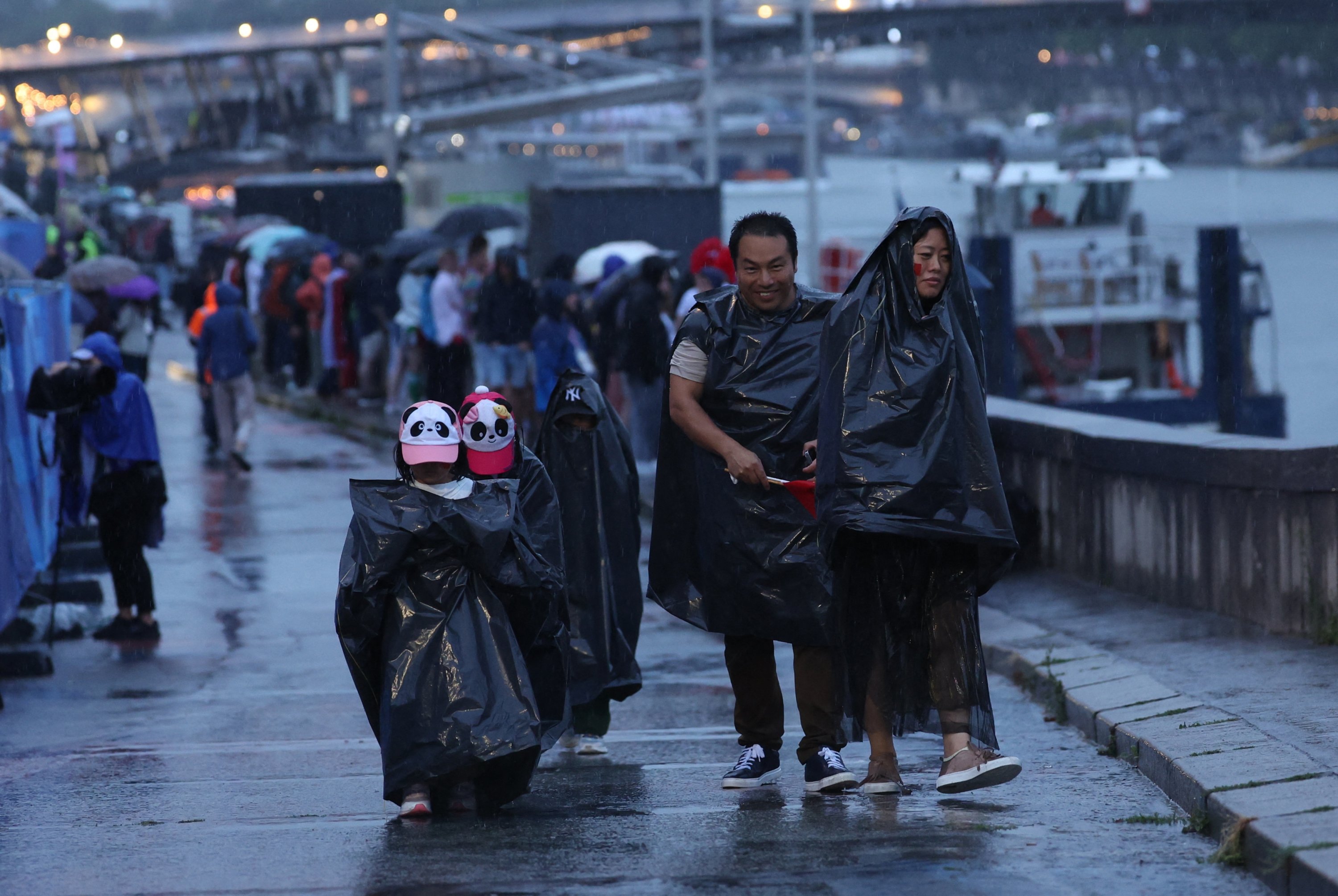
The previous day’s opening ceremony, despite being drenched, showcased a vibrant parade of athletes on barges along the Seine.
Chinese badminton player He Bingjiao missed the ceremony due to the rain, noting, “I had to rest. I was watching it on my phone.”
Saturday’s continued downpours led to the rescheduling of the skateboarding event, which was moved to Monday due to dangerous conditions at La Concorde.
A World Skate spokesperson cited the risk of reduced traction on wet surfaces.
Tennis events also faced disruptions, with long lines of spectators and delays affecting uncovered courts.
Outside Arena Champ-de-Mars, fans eagerly awaited judo competitions, where France might win its first medals, including a potential gold for Luka Mkheidze.
Organizers managed the logistical challenges of Friday’s ceremony, providing athletes with areas to dry off and rest.
Chief Tony Estanguet praised their adaptability, noting the athletes' positive response to the arrangements.
While some spectators left to escape the rain, others appreciated the ceremony's splendor.
French bishops expressed discontent on Saturday with the opening ceremony of the 2024 Paris Olympics, criticizing it for scenes they believe mock Christianity.
The controversy centered on a drag queen reenactment of Leonardo da Vinci’s "The Last Supper," which was part of the ceremony's performance set to DJ Barbara Butch’s music. The Bishops' Conference of France expressed regret over what they called "derision and mockery" of Christian traditions, though they acknowledged the event’s overall aesthetic and emotional impact.
The segment, featuring drag queens at a table reminiscent of the Last Supper, drew accusations of "blasphemy" and "anti-Christian" sentiment from social media users. Bishop Robert Barron of Minnesota urged Catholics to protest against what he described as a "gross mockery" of sacred traditions.
The backlash extended to far-right politicians and conservative commentators. Marion Marechal criticized the ceremony as a product of a "leftist minority," while Julien Odoul of the National Rally party condemned it as a "ransacking of French culture." Hungarian Prime Minister Viktor Orban labeled it as a symbol of "Western decline."
Despite the criticism, the opening ceremony, featuring a diverse range of performances from boats along the Seine, received mixed reviews.
French media hailed it as a memorable spectacle, while critics, including Arifa Akbar of The Guardian and Mike Hale of The New York Times, found it overblown and disjointed.
Approximately 100,000 spectators braved the rain to attend, though visibility was limited for many.
Around 200,000 free tickets were issued for less accessible viewing areas.
Paris Games organizers and the International Olympic Committee (IOC) praised the ambitious scale of the ceremony.
IOC executive director Christophe Dubi called it a significant contribution to the Olympic legacy, while Paris Games chief Tony Estanguet hailed it as "unique" and commended the effective security measures.
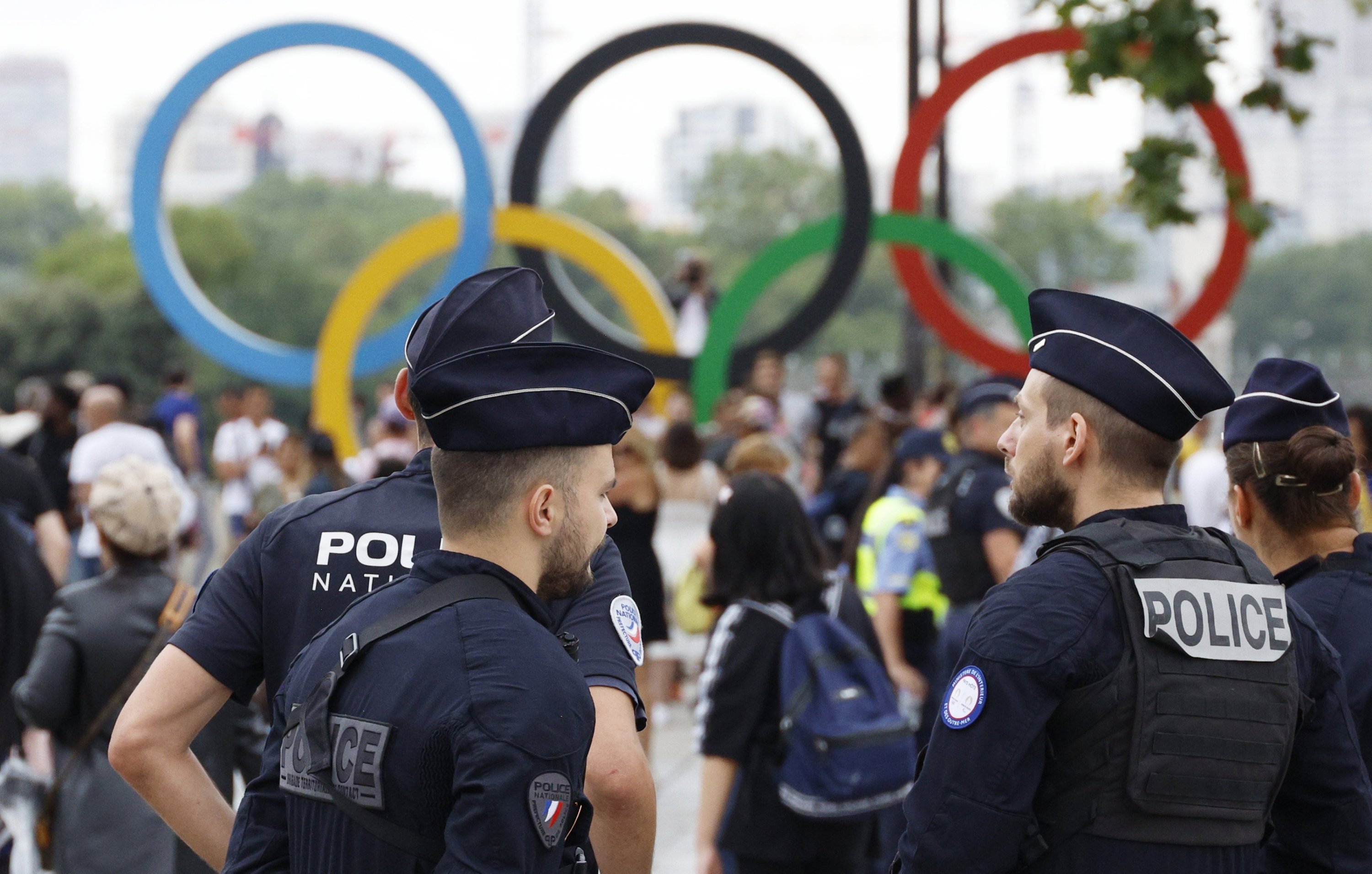
Australian BMX champion Logan Martin had his belongings stolen in Brussels, not Paris as reported earlier, before traveling to France for the Olympics, according to the Australian Olympic Committee.
Martin shared videos on Instagram documenting the theft, which occurred in Brussels' Saint-Josse-ten-Noode area, not Paris as some social media accounts incorrectly reported.
The Australian Olympic Committee confirmed that most of the stolen items were recovered.
French authorities also arrested a 40-year-old Russian man living in France, accusing him of plotting a significant act of destabilization during the Paris Olympics.
The suspect, who had resided in France for 14 years, faces charges of conducting intelligence work on behalf of a foreign power.
Evidence found during a raid on his Paris residence included a document linked to a special forces unit under the Russian FSB, according to The Guardian.
This arrest comes as Paris intensifies security for the Olympics, banning 5,000 individuals who failed background checks and deploying thousands of additional police officers.
In the opening match of the Olympic football tournament between Argentina and Morocco, a fan invasion caused major disruption.
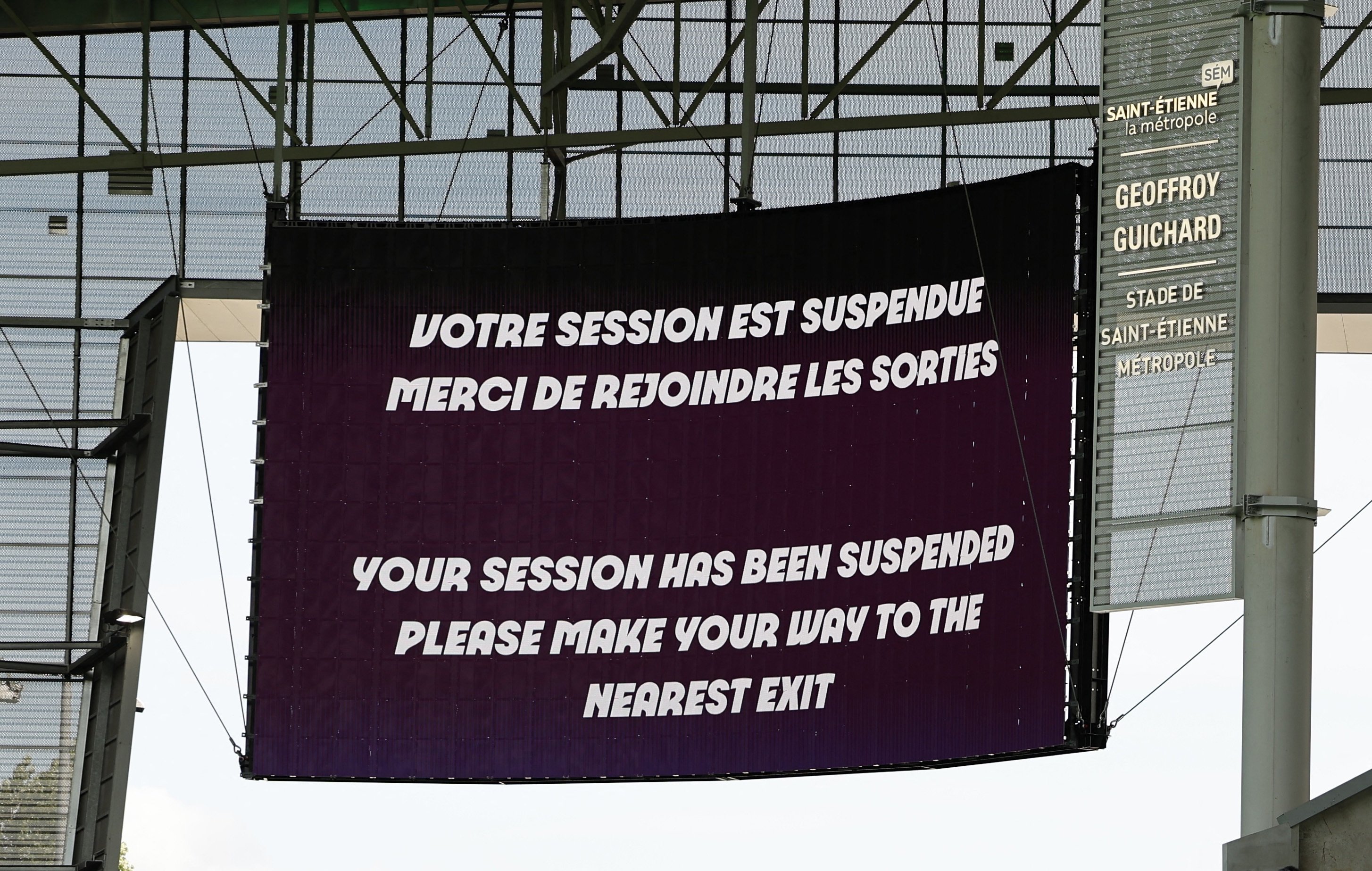
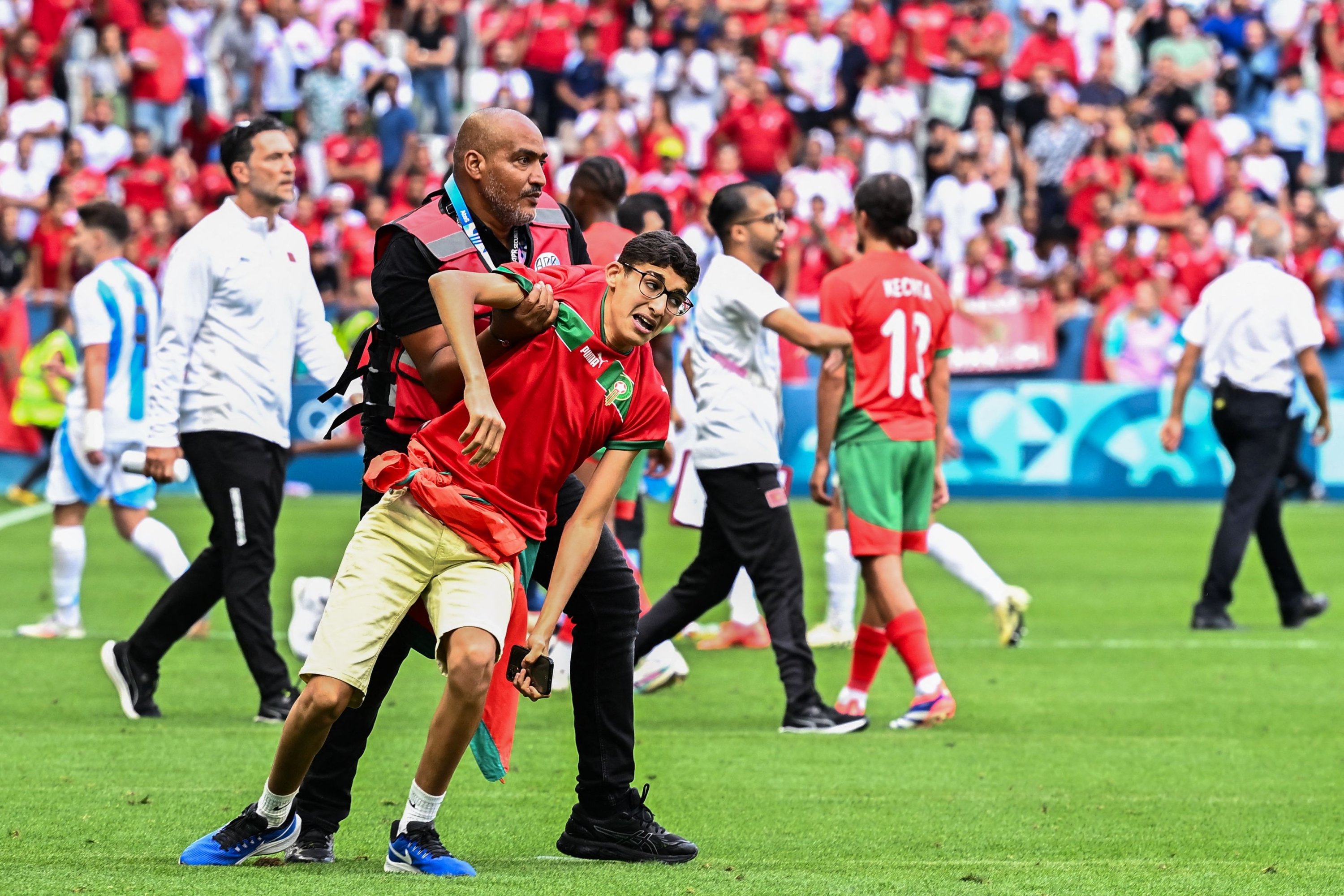
The match, initially tied 2-2, was thrown into chaos when fans stormed the pitch, leading to a suspension.
Argentina’s Cristian Medina scored a dramatic late goal, seemingly securing a 2-2 draw.
However, the goal was disallowed after a two-hour VAR review, during which the stadium was cleared and the match resumed in an empty arena. The final minutes were played out with Morocco eventually winning 2-1.
Morocco's Soufiane Rahimi scored twice, including a penalty, while Argentina's Giuliano Simeone netted once.
Despite the presence of key players like Julian Alvarez and Nicolas Otamendi, Argentina struggled throughout the game.
The venue manager confirmed the match was only suspended and not canceled, and discussions about resuming the game took place before the teams returned to finish the final moments.
Concerns about the Seine River’s water quality led to the cancellation of a Sunday triathlon pre-race event.
Organizers, including World Triathlon officials and local authorities, decided to forgo the swimming leg due to water quality issues.
The Seine has been off-limits for swimming for over a century due to pollution.
Despite a $1.5 billion investment to clean the river for the Games, recent water quality tests showed unsafe levels of E. coli bacteria, although there have been improvements.
Paris Mayor Anne Hidalgo recently swam in the river to demonstrate its safety, but heavy rain during the opening ceremony revived concerns.
Organizers have undertaken significant projects, such as building a massive underground storage basin and upgrading sewage systems, to prepare the Seine for the Olympics.
The most embarrassing moment occurred during the opening ceremony when the South Korean team was introduced as the “Democratic People’s Republic of Korea,” the official name of North Korea.
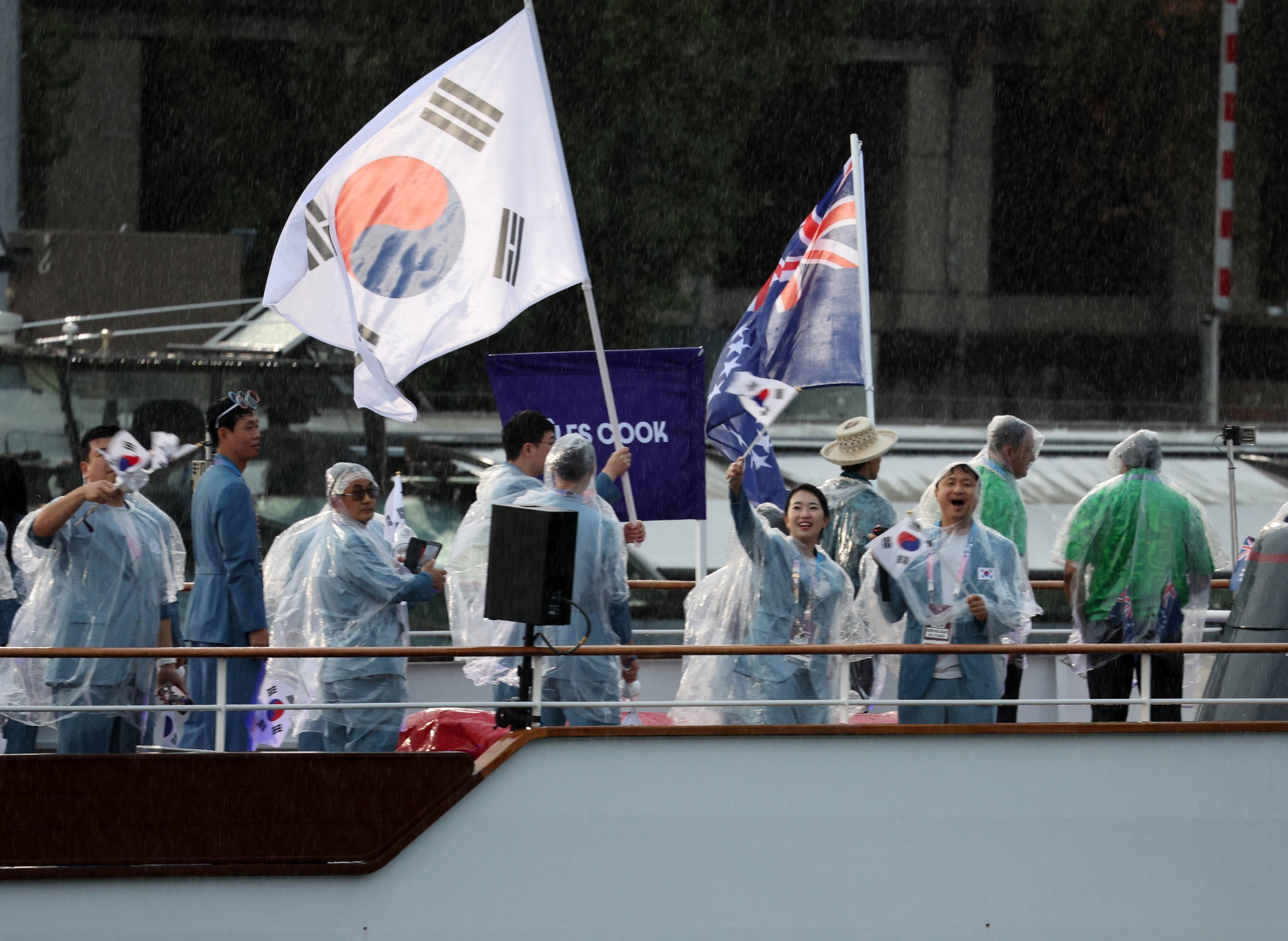
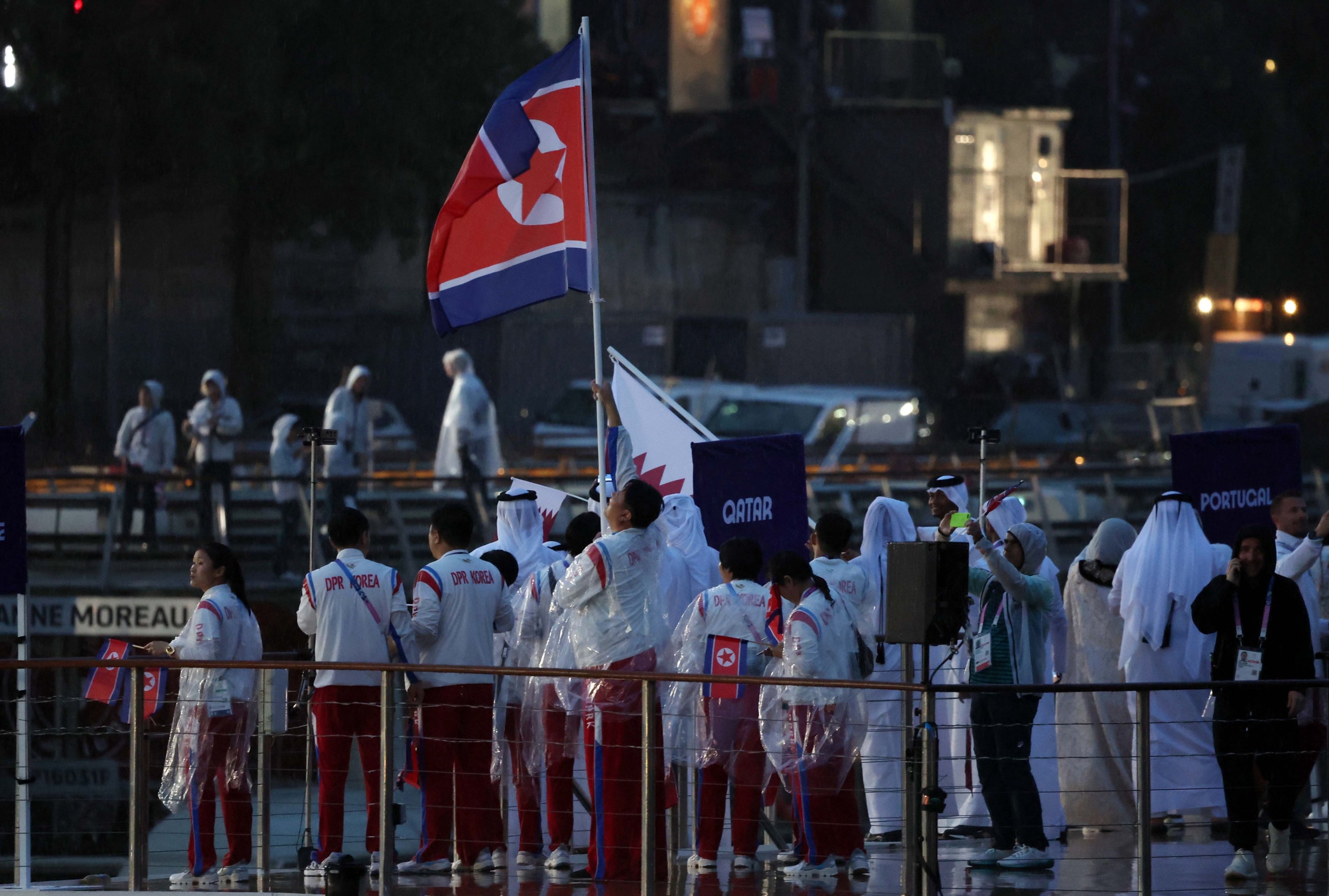
The error was later corrected when North Korea’s delegation passed by.
Despite the broadcast displaying the correct name, the mistake sparked outrage.
The South Korean Sports Ministry plans to file a formal complaint with the French government over the gaffe.
They expressed regret and demanded a meeting with International Olympic Committee (IOC) President Thomas Bach.
The IOC later apologized on its Korean-language X account, acknowledging the mistake.
South Korea, officially known as the Republic of Korea, has 143 athletes competing across 21 sports, while North Korea has sent 16 athletes to the Games, marking their return since Rio 2016.
The Paris 2024 Olympics have faced several notable missteps, undermining the smooth execution expected from such a major event.
While organizers have managed to address some challenges with notable adaptability, the persistent issues reflect poorly on the preparatory phase.
Efforts to address criticisms, including handling disruptions and security concerns, are commendable but have not fully mitigated the damage to the Games' reputation.
The initial mishaps cast a shadow over the event's potential to shine as a beacon of international sporting excellence.
The verdict is clear: the Paris 2024 Olympics, despite their ambitious vision, have faced an inauspicious start, necessitating a thorough reevaluation to ensure the remainder of the Games meets the high standards expected of such a prestigious event.
